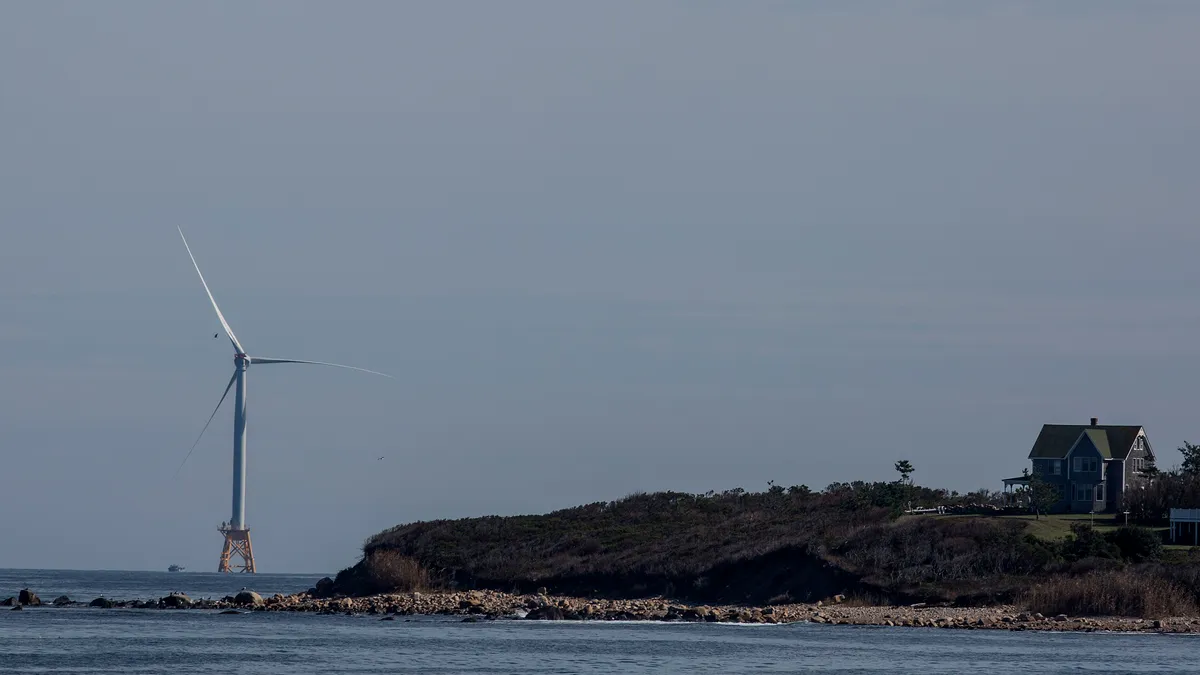Dive Brief:
-
ISO New England (ISO-NE) gives some natural gas-fired power plants an unfair advantage in its capacity and operating reserves markets by failing to account for the possibility they may be unable to run at times because of a lack of fuel supplies, according to a complaint filed by renewable energy trade groups with federal regulators.
-
ISO-NE's "undue preferences" for natural gas-fired generators without firm fuel supplies lowers capacity, real-time reserve and real-time energy prices, which raises barriers to renewable energy and energy storage facilities, the American Clean Power Association (ACPA) and RENEW Northeast said March 15 in their complaint with the Federal Energy Regulatory Commission.
-
"A diverse array of clean energy resources can supply reliable capacity to New England, but wind, solar, and storage are clearly disadvantaged by current market rules favoring gas generators," Gabe Tabak, ACPA counsel, said in a statement.
Dive Insight:
ISO-NE has long warned New England has limited natural gas pipeline capacity, which the grid operator in December said could lead to blackouts under extreme winter conditions.
However, when qualifying resources for its capacity auctions, ISO-NE assumes gas-fired resources will always have fuel supplies and be able to operate, according to the complaint from ACPA and RENEW.
In contrast, the grid operator assesses how much capacity other resource types can reliably deliver, leading renewable resources to have accredited capacity well below their nameplate capacity, Francis Pullaro, RENEW executive director, said Wednesday.
If FERC approves the complaint, pipeline-dependent generators would get a "haircut" on how much capacity they could qualify for in ISO-NE's capacity auctions, Pullaro said.
About 9,200 MW of pipeline-supplied gas-fired capacity in New England lacks a backup fuel source, according to ACPA and RENEW. That capacity equals about 28% of the capacity that cleared ISO-NE's just-held capacity auction.
ISO-NE recently estimated that under extreme winter peak conditions up to 4,546 MW of gas resources with a capacity obligation may be unable to obtain natural gas, ACPA and RENEW said, pointing to a presentation by the grid operator.
ISO-NE's failure to properly account for how much capacity some gas-fired power plants can reliably deliver is distorting New England's capacity market, according to the trade groups.
"The end result is to cause the actual supply of capacity to be overstated, which in turn counterproductively incentivizes gas-only resources not to make investments necessary to assure their capacity is backed by firm gas supply and transportation or by an alternative fuel source (e.g., dual-fuel resources), and leads to capacity clearing prices below competitive levels," the trade groups said in the complaint.
Also, ISO-NE improperly treats pipeline-dependent gas plants as operating reserves, according to the complaint. Operating reserves provide backup power if there are sudden changes in real-time supply or demand.
Operating reserves must be able to provide electricity within 30 minutes when called, ACPA and RENEW said.
"In severe winter weather conditions where pipeline capacity and overall natural gas availability may be constrained, this approach creates the false impression that there is an abundance of reserves available to the system," they said.
ISO-NE may be overpaying natural gas-only resources that cannot adequately provide real-time operating reserves while underpaying other resources that can reliably provide reserves, the groups said, noting intermittent resources are ineligible to provide operating reserves.
The need for reliable operating reserves is especially acute as New England adds more intermittent resources to its power system, according to the complaint.
ISO-NE is starting a stakeholder process to consider changes to its capacity accreditation process by using an "effective load carrying capability" methodology, which could address some of the concerns raised in the complaint, the trade groups said.
However, a new accreditation process wouldn't be in place until June 2028 at the earliest, which is too long of a wait, according to the groups. They asked FERC to require ISO-NE to change its capacity accreditation rules by mid-2027.
The New England Power Generators Association didn't immediately respond to a request for comment.














